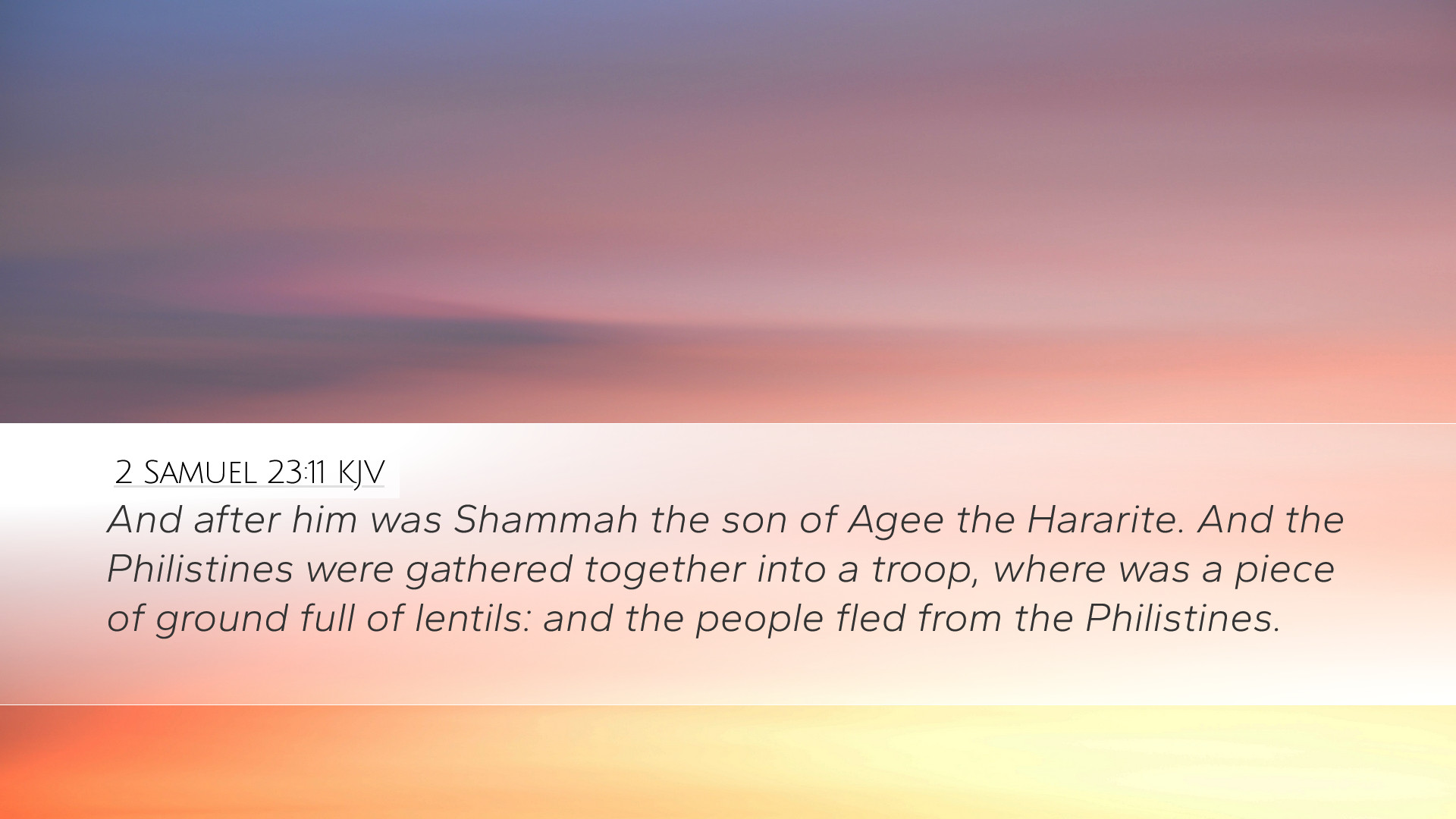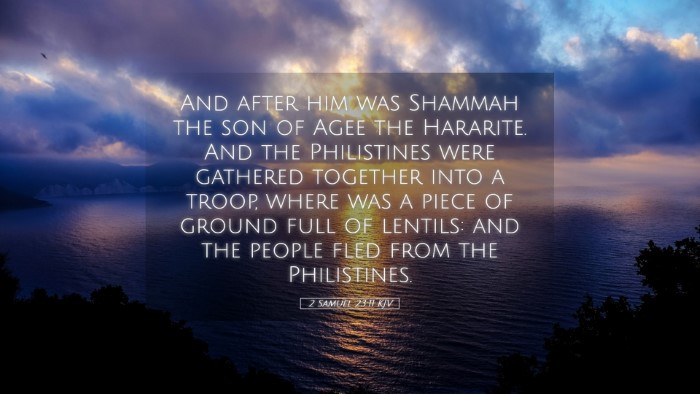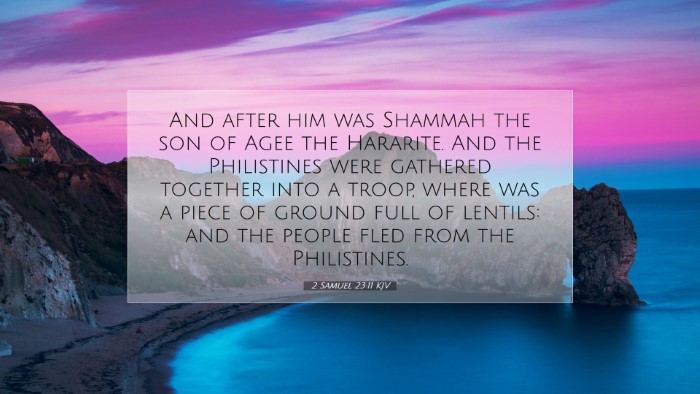Commentary on 2 Samuel 23:11
Bible Verse: 2 Samuel 23:11: “And after him was Shammah the son of Agee the Hararite. And the Philistines were gathered together into a troop, where was a piece of ground full of lentils: and the people fled from the Philistines.”
Contextual Overview
This passage from 2 Samuel 23 occurs in a section known as the Song of the Bow and covers the heroic deeds of David's mighty warriors. It highlights both the tumultuous historical backdrop of David's reign and the valor of his men during a time of national distress.
Verse Analysis
The figure of Shammah emerges as a symbol of courage and resilience amidst adversity. The specific mention of lentil fields illustrates the value of even the smallest possessions, which were crucial for sustenance during challenging times.
Shammah as a Figure of Valor
According to Matthew Henry, Shammah demonstrates an extraordinary act of bravery by standing his ground, illustrating the principle that sometimes one must fight for what is rightfully theirs, even if others abandon the cause. His name means ‘desolation,’ which is somewhat ironic when juxtaposed with his fierce reputation.
Philistines and the Fleeting People
Albert Barnes notes the strategic importance of this encounter, underscoring the Philistine threat to Israel's agricultural stability. The fleeing of the people highlights the anxiety and fear that permeated the nation. The ground full of lentils symbolizes not only physical sustenance but also spiritual resilience and the necessity to defend one's heritage.
The Crop as a Symbol
Adam Clarke remarks that the lentil, a humble crop, represents the everyday struggles of life. Defending the lentil fields parallels the battle for one's faith and community. Shammah’s bravery in this regard speaks to the necessity of steadfastness in even the most mundane aspects of life.
Lessons for Today
- Courage in Adversity: Shammah’s stand reminds us that courage often requires standing firm when others may retreat.
- Valuing the Mundane: The defense of lentil fields underscores that even the most ordinary aspects of life are worth fighting for in faith and community.
- Leadership in Crisis: The role of leaders, both in biblical times and today, includes inspiring others to take a stand for righteousness.
Theological Reflections
This narrative invites deeper theological reflection on the nature of faith in challenging circumstances. The idea of defending one’s ground resonates with the Christian call to spiritual warfare and the protection of one’s beliefs.
Faith and Integrity
Shammah’s unwavering defense of the lentil field can be understood as a call for believers to uphold their integrity and convictions. In a world where believers are often marginalized, the story of Shammah inspires personal and communal resolve to stand firm.
The Community Aspect
The account also serves as a reminder of community dynamics. Shammah stands alone in his bravery while others flee, presenting a juxtaposition between individual responsibility and communal cowardice. The text encourages theological discourse surrounding community action and individual faith.
Conclusion
2 Samuel 23:11 serves not only as a historical account of David’s mighty men but also as a resonant parable of courage, faithfulness, and the importance of standing firm in one’s convictions, reminding modern readers that even the smallest stakes, like the lentil field, are worth defending.
Call to Action
As pastors, students, and scholars engage with this passage, let it be a source of encouragement and challenge to embody the courage of Shammah. In our personal and communal spheres, may we be inspired to defend what is right, just, and true, no matter the circumstances we face.


